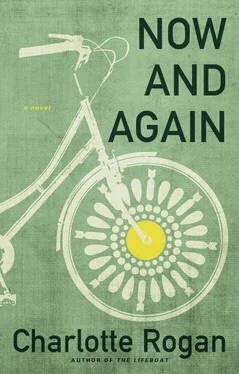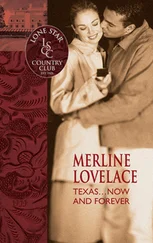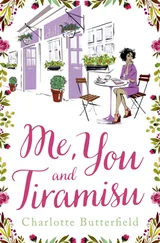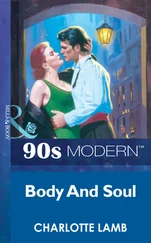“Very well, thank you,” Maggie replied, pushing away from the table rather than leaning forward as she usually did.
One day, it was Tomás who leaned forward into the vacant space and asked, “Do you have a dog?” And then he asked, “Why not?”
“No good reason,” said Maggie. “We had a big ol’ cat once, but it ran off.”
“If you had a dog, what would you name it?”
Maggie told him she neither had a dog nor wanted one, so any name she came up with on the spur of the moment wouldn’t mean anything.
“Don’t you like dogs, then?”
“I like dogs as well as I like all God’s creatures.”
“So you like me,” said Tomás.
“Of course I do!” Maggie exclaimed, but she was beginning to wonder if she did.
“If I could change into a dog and go home with you, I would. I’d do it this second. I wouldn’t even think twice.”
“No you wouldn’t,” said Maggie cautiously. She was already aware that she had begun to think of Tomás as not quite human, but this was her first inkling that he thought of himself that way. “To be perfectly honest, I don’t really like dogs,” she said.
“Go ahead, tell me to sit,” said Tomás. “Go ahead and tell me to stay.”
He was like a dog with a bone, and he wouldn’t let it drop. “I’d do it. I’d do it for you,” he said a few minutes later, but she didn’t want him to do it. It was the last thing in the world she wanted. “Just give me any command you want,” he said, loudly enough for the whole class to hear.
“You’re not a dog, Tommy!” The instant the diminutive left her lips, she wished she could take it back. A look of triumph spread over Tomás’s features, and he rocked in his chair, leering stupidly at her. All Maggie could do was repeat, “You’re not a dog, and you shouldn’t say you are.”
“But I can be loyal. I can be loyal and true.”
She told him sharply to act like an adult.
“Okay, so then I won’t be loyal if that’s what you want.”
“It’s not about what I want!” cried Maggie in exasperation. It wasn’t Tomás, she knew, but the prison. Still, it was hard to be kind to him after that.
“Well, it’s certainly not about what I want. I want to go back to my girlfriend. I want to live in a little cabin in the mountains. A little cabin with pine floors and a fireplace and maybe a river outside the door. What I want is to be free.”
“Do you Tomás? Do you really?” Maggie was leaning forward now, and Tomás was leaning back. “Then why did you wind up in prison? Why were you wandering around on the streets that day? Why weren’t you in school or at a job?”
“A job,” said Tomás. “Do you really think jobs are so easy to find?”
“And why did you get kicked out of your foster home?”
Tomás had the hangdog expression again, his eyeballs settled in their sockets, his chin tucked, his brow slightly furrowed, and a quivering half-smile tugging at his lips as if he was trying not to cry. But then a light flickered and caught behind his eyes and he said, “How did you know that? How did you know about the foster home?”
Maggie couldn’t have known unless she had read his file or asked some questions about him; either way, it was evidence that she had shown more than the usual interest in him. She ignored the question — what was there to say? Instead of answering, she strode to the front of the room, snatched up the bag of candy, and then marched up and down the rows of desks, passing it to everyone, Tomás last. By the end of the hour, she had recaptured enough of her earlier high spirits to smile and say, “If you really wanted to be free, Tomás, you’d start taking responsibility for yourself. You’d buckle down and use these sessions to pass the high school equivalency test.”
“But how did you know?” asked Tomás again, sucking his yellow teeth as if they were lumps of sticky caramel.
“I only wanted—” But then Maggie stopped herself. Why admit to anything? Why awaken in Tomás something he couldn’t have? She wondered if she was turning callous, like Valerie and the other volunteers, all of whom wore friendly masks and unwavering robotic smiles. What was she supposed to say to someone who couldn’t be free for over two decades even if he got time off for good behavior?
But she was starting with the conclusion. If Tomás was telling the truth about his innocence, it would lead to a different conclusion altogether. “Why did you run from the police, Tomás? Why in God’s name did you run?”
But Tomás was celebrating his little victory over her by smiling and drawing hearts in the margin of his book.
We were almost to Samarra when the call came to turn the convoy west. The captain told us to deliver the supplies to the school and then catch up with the others. We figured the detour would take us ninety minutes, tops.
— Staff Sergeant Mason Betts
I remember thinking, You’re shittin’ me — the school? But Betts said we were doing it, and he was in charge.
— Specialist Win Tishman
The best way to promote peace is to educate the women. I’m probably quoting someone, but I can’t tell you whom.
— Captain Penn Sinclair
Counterinsurgency meant building infrastructure and relationships. Some people believed in it more than others. The captain, he was one of the believers.
— Corporal Joe Kelly
Just after we turned the convoy, we got reports that the road-clearing crews had been pulled from the main supply route north of Samarra. I remember saying to the captain, “It’s a good thing our guys aren’t going there.”
— First Sergeant Vince L. Crosby, aka Velcro
4.1 Danny Joiner
Danny raised his binoculars to his eyes and peered up the road, searching for the rest of the convoy. “We should have caught up with it by now,” he said.
“You’re sure this is the right road?” asked Pig Eye.
Danny pulled out the strip map and said it had to be, because of the canal that was visible down a slope to their right. But just in case, he radioed up to Betts, who was in the second vehicle.
“Affirmative,” said Betts. “This is it.”
As Pig Eye drove, Danny fingered his weapon and scanned the roadside from eleven to three o’clock and back again, looking for shadows or movement, but all he saw was an endless expanse of brown-upon-brown that faded to blue at the horizon but was greener down by the canal. Now and then they passed a burned-out vehicle or a ramshackle farm or a farmer and, once, a kid on a bicycle who stopped and waved at them as they passed and then a group of kids who didn’t wave, and through it all, the dusty and colorless road.
He wondered vaguely what Dolly was doing now. It was very early at home, so she was probably still in bed wearing the animal-print nightgown or the one with the hearts on it. He wondered if she had rubbed lotion onto the calluses on her feet and if it was the almond-scented lotion or the stuff that smelled like milk. He wondered if she had replaced the torn coverlet or gotten new curtains for the windows the way she kept talking about.
Then something wasn’t right — a shift in the color spectrum, an eddy in the shimmering air. He scanned the road for the hundredth time: left to right, then right to left, then a glance at the driver’s side. There! Movement behind the low wall of an animal enclosure. A glint of metal by the side of the road. The lead vehicle slowing down. It was probably nothing, but a prickle of alarm jumped across the synapse separating him from Pig Eye.
“What is it? What is it?” asked Pig Eye, twisting toward him from the driver’s seat. Danny saw a wrinkle of worry cross his brow just as the lead vehicle exploded and the next one swerved into a ditch. Pig Eye slammed on the brakes, causing the top-heavy cargo truck to wobble and roll and catapulting Danny forward while Pig Eye fell away and down, as if he had pulled a rip cord or performed a trick and disappeared. Before he lost consciousness, Danny heard a daisy chain of detonations. He tasted cordite and heard the beginning of a shout just as he remembered the last lines of the Shelley poem: The lone and level sands stretch far away.
Читать дальше












